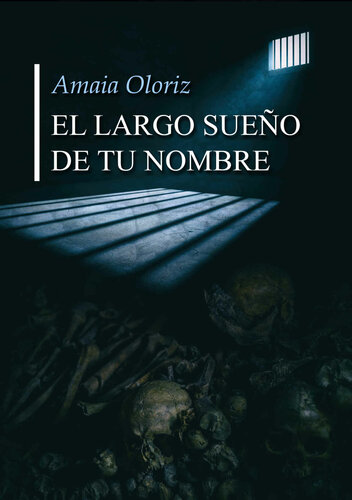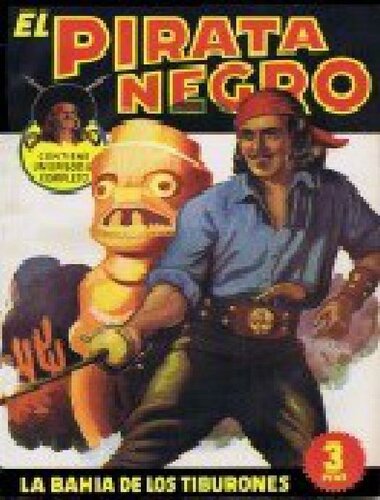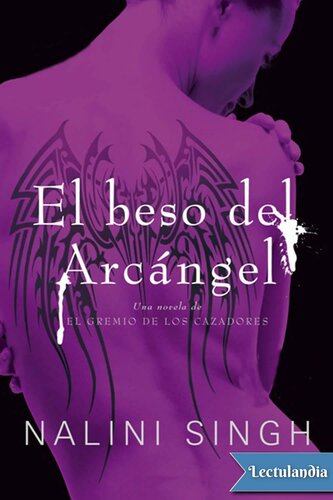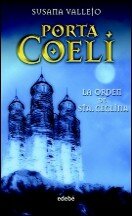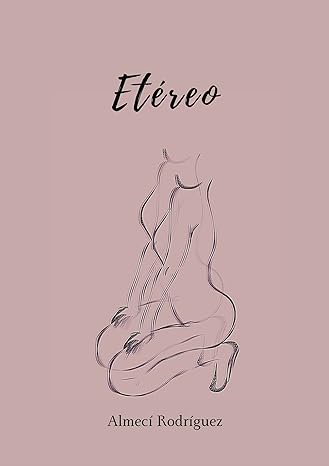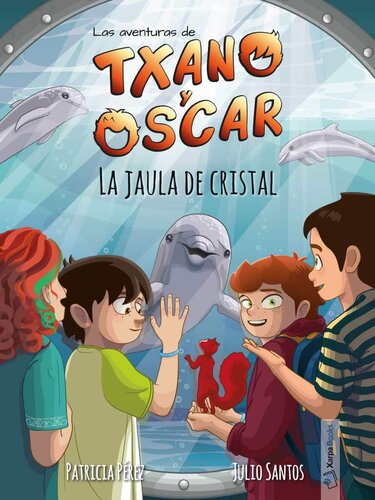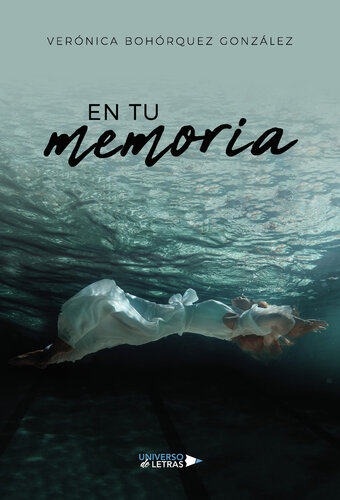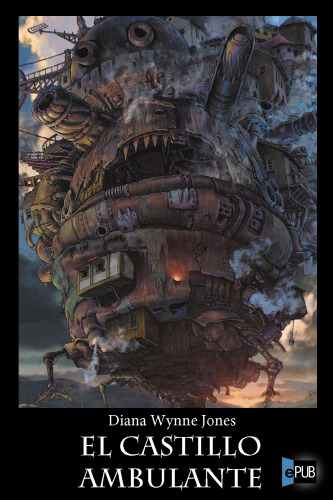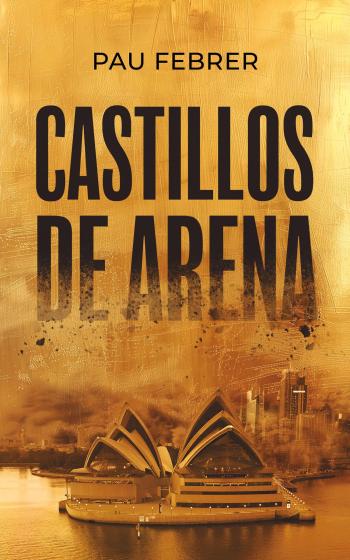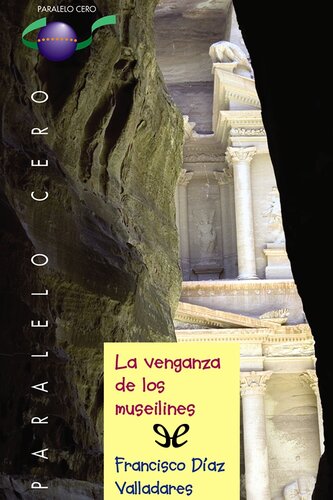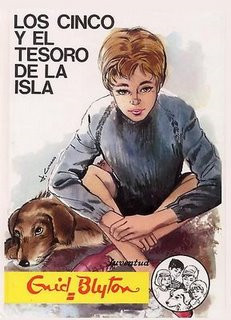oleebook.com
Fuga sin fin de Roth, Josep
de Roth, Josep - Género: Ficcion
Sinopsis
Roth, Josep Year: 2010
Descargar
Descargar Fuga sin fin ePub GratisLibros Recomendados - Relacionados
Reseñas Varias sobre este libro
IN UN MONDO IN CUI NON ERA DI CASA
Questo è il romanzo che viene considerato il più autobiografico nella sua produzione, come se Joseph Roth potesse dire Oui, Franz Tunda cest moi!.
Citazione parafrasata a parte, sarebbe bello che fosse così, perché Franz Tunda è il mio eroe (uno dei miei eroi).
Roth è considerato il cantore della finis Austriae, di una grande civiltà in piena dissoluzione (=decadenza). E in queste pagine molti trovano anticipazioni dellorrore che di lì a qualche anno si abbatté sulla Germania e il resto del mondo con Hitler e il nazismo.
Senza niente negare o contraddire, a me sembra che in queste poche pagine più che di una fine, si parli di un caos, di un ribollire indecifrabile: certo, gli anni della Repubblica di Weimar, i roaring Twenties, ma soprattutto, secondo me, è levento nuovo e in gran parte incomprensibile che colpisce e complica il tutto, la rivoluzione bolscevica, un tumulto che spazza via, e non si sa cosa produrrà.
Tunda, il protagonista, intraprende una fuga senza fine non tanto perché non riconosce il mondo dove sta tornando, quello che ha lasciato, perché non si sente più a casa: non si sentiva a casa neppure prima di partire, daltronde.
È nel mondo che non si sente a casa. Nella vita.
Come nella canzone di Nick Cave, Cassiels Song, giustamente citata da qualcuno a questo proposito:
C'è un luogo che non faceva per te / Dove il tempo stesso era folle e troppo forte / Dove la vita ti è saltata addosso ridendo e ti ha colpito la testa e ti ha fatto male
Tunda è estraneo, è straniero. A quel mondo.
E alla vita?
Sì, anche alla vita se le regole che la racchiudono sono quelle descritte in queste pagine: non mi sarei affatto meravigliato se in conclusione il protagonista giungesse a fine violenta, suicidio o morte più o meno accidentale.
Helmut Lohner/Franz Tunda nel tv movie omonimo del 1985, regia di Michael Kehlmann.
Franz non riesce a reinserirsi in quel mondo semplicemente perché non può: non solo perché ormai non esiste più, ma perché non si sarebbe inserito anche se fosse rimasto, e non fosse mai partito, mai dato per disperso e creduto morto. Tunda non appartiene a quel mondo, non lo capisce: ma non appartiene neppure al mondo nuovo, non capisce bene neppure questo. Vuole sempre altro, è sempre alla ricerca.
E in fondo, come potrebbe capire, condividere, ed esercitare lumana pratica di spiegare Marte a un marziano? Arte che come si vede da queste pagine, viene da lontano e, ahimé, va lontano. Infatti, dura ancora: chi ha voglia di ascoltare? Tutti parlano e spiegano tutto, mondo vita e infinito. Viviamo nel mondo dei saggi.
Reginald Gray: Interno con Catherine.
Apparentemente svogliato, abulico, inerte (ma non quando incontra una donzella! Oh, no, le grazie femminili lo coinvolgono da est a ovest, e ovunque lascia un buon ricordo, un segno - Le donne che incontriamo stimolano più la nostra fantasia che non il nostro cuore), Tunda percorre lEuropa dalla Siberia a Parigi, andata e possibile ritorno, chissà, il finale è quanto di più aperto si possa immaginare.
Come giustamente sottolineato da qualcuno, la fuga di Tunda fa pensare a:
Questa è la storia di un uomo che cade da un palazzo di 50 piani. Mano a mano che cadendo passa da un piano all'altro, il tizio per farsi coraggio si ripete: "Fino a qui, tutto bene. Fino a qui, tutto bene. Fino a qui, tutto bene." Il problema però non è la caduta, è l'atterraggio. (Lodio, film scritto e diretto da Mathieu Kassovitz).
Una fuga che è una caduta.
Quasi un secolo dopo la pubblicazione di questo libro, non siamo ancora atterrati.
Its a place where you did not belong, Where time itself was mad and far too strong, Where life leapt up laughing and hit you head on And hurt you
austria mitteleuropa132 s Kalliope691 22
This has been a perplexing and highly gratifying read.
This novel has thrown me off-balance. Not that I did not find familiar elements from Roths writings. Many of those I can recall from his Hotel Savoy. True, the title itself, Flight Without End, already releases these themes: transient existences, lives on the border, rootlessness, yearning, all of them with a tint of hopelessness and alienation. Or from Weights and Measurest: the determinant role of conditions and settings in the existence of the individual, the hidden but preponderant hand of fate in the life of any specific human. I was also familiar with the fine ironic tone and and the flavour of a fairy tale encountered in The Tale of the 1002nd Night: A Novel, and with the social and political criticism of the The Radetzky March.
But there was something additional this time: the bizarre role of the narrator and his claims.
For the subtitle of this novel, Bericht, or Report, announces the claims with which it begins.
Joseph Roth writes that he is giving us an account of the life of his friend Franz Tunda, and that it is all based on Tundas narration and notes. That nothing is literarily composed (dichten) and that it is the result of observation.
And so it seems at the beginning. There is certainly an air of detachment from the third person narrator, but soon Roths subtle and humorous irony is noticeable. The factual and impersonal sentences are interspersed by acute perceptions with a tint of personal judgment. A painting is not a photograph. And so he delivers the story of an uprooted man, an Austrian First Lieutenant who is captured by the Russians and sent to prison in Siberia from where he escapes. We follow him in his itinerary of survival, through the white and red Russia, through Crimea, through Azerbaijan. We are exploring the borders: political, topographic, ideological, social... until we reach Vienna again.
Once back home I felt at first a change of tone. The narration becomes more personal and Tundas diaries are explicitly quoted, and these are followed by some letters, until Joseph Roth himself appears, no longer as an anonymous narrator who keeps at a distance, but in his persona, naming specific times and places, and the fiction with which this novel began, the report, seems to be taken up again. That shift in the resonance and the intonation that disconcerted my reading is modulated back and fully resolved. The novel, in its format and plot, finishes its circle.
Even if the conclusion is that Franz Tunda has not found his place in that circle. He is left outside that circle: He had no profession, no love, no joy, no hopes, no pride and no trace of Selfishness. There was no one in the world as superfluous as him. (my translation - Er hatte keinen Beruf, keine Liebe, keine Lust, keine Hoffnung, keinen Ehrgeiz und nicht einmal Egoismus. So überflüssig wie er war niemand in der Welt.).
And it is inevitable that not in the fictional Joseph Roth, but in the fictionalized Franz Tunda we do recognize the real Joseph Roth. As a citizen of the multicultural, sophisticated, hegemonic Austro-Hungarian empire who lived through WW1 and through the demise of his homeland, he knew about the dissolution of borders and the faculty that limitations have in creating identities. One can also guess Roths own literary interests in his including a copy of Thomas Manns The Magic Mountain from 1924 in the setting of the novel. Or in his mentioning of Proust in this work of 1927, when the Frenchmans last volume was published in that same year.
Joseph Roth has been identified with the Neue Sachlichkeit or 'New Objectivity', a German art movement, which in my mind I associate more with a pictorial rather than a literary output. Roth apparently rejected this association. Artists always reject being pigeonholed. But may be we ought to understand that it is the artists themselves who create their own categories by finding new and idiosyncratic modes of expression. So it is not that they are being pigeonholed but that they create the pigeonholes. And indeed in the German wiki this novel is used as an example of this literary Neue Sachlichkeit.
And this makes perfect sense to me. There it was all the time, the characteristic of Roths writing that so appeals to me but that not until this work, had I identified it so clearly. His mode consciously avoids cheap sentimentality and false profundity. Powerful writing does not need to drown the reader with a rigmarole of adjectives that just float away with their pointlessness or stick to your skin sickly sugar. And yet some of his sentences or observations could either slice your heart or make you look down into a beckoning void.
For he delivers to us the portrait of a man who avoids props and any other sort of social accoutrement, and fleeing his framework endlessly, ends on his own as a single object.
But can we say that there is no subject giving us this view?
Please, I will have some more Joseph Roth to read.
2014 austro-hungary fiction-german ...more44 s Tony961 1,687
This book is part of my WWI project: to read a work of fiction by authors of the various countries involved. But I didn't want this to be different countries but the same trench. Rather, I wanted to look at the War obliquely: at home in an American suburb - They Came Swallows - where the contemporaneous flu comes; at the return of a Canadian-Indian sniper - Three Day Road.
In this novel, Joseph Roth tarries in the War no longer than the first sentence: Franz Tunda, first lieutenant in the Austrian Army, became a Russian prisoner of war in August, 1916. We follow Tunda from there in the voice of a fictional Joseph Roth, who assures us, "I have invented nothing, made up nothing."
The plotting early is slight, jejune. Characters move from A to B with little explanation or seeming purpose. But then something odd happened, to me, the reader. I came upon this quote, which I duly added as a status update:
Monsieur Edmond de V. spoke to me, with friendly eyes but with a disdainful mouth, so that I did not know which feature to trust.
The incongruity observed by Tunda woke me up since it was palpably not only physical. It was meant to strike a dissonant chord. Who or what to trust, indeed.
This dichotomy continued in a wonderful chapter - XXIV - when the peripatetic Tunda arrives in Paris.
He had expected a clear blue morning sky in Paris. But the morning in Paris is drawn with a soft pencil.
Tunda walks into a shop where a young woman asked him what he wanted in a tone that was unfeeling, almost aggressive and yet kind. A servant at his hotel was both ironic and courteous.
But Roth was just warming up. The duality, it became clear, was not reserved to individuals. What was Europe in 1926?
A French diplomat, stationed in Berlin, had lived in Germany for years and cordially hated it. Tunda heard them all: they spoke of a community of European culture. And so he asked them to tell him what constituted this culture:
'Religion!' said the President, who never went to church.
'Morality,' said the lady, whose irregular associations were common knowledge.
'Art,' said the diplomat, who had never looked at a picture since his schooldays.
And then the lesson:
'You want,' said Tunda, 'to uphold a European community, but you must first establish it. For this community does not exist, otherwise it would already know how to maintain itself. All in all, it seems to me very doubtful whether anyone can establish anything at all. ... Before that happens, it will probably have succumbed to another war.'
'That is exactly what we are seeking to prevent,' several persons said simultaneously.
'And wasn't that what you wanted in 1914, too?'
Tunda learned that "revolutions were not waged against the 'bourgeoisie' but against bakers, against waiters, against small greengrocers, insignificant butchers and defenceless hotel servants." He befriends the French President, but courtesy mixes with disdain when Tunda is out of money.
They were no longer as free with each other as they had been. Perhaps, after this, the old man would have trusted Tunda with one of his secrets, but he would no longer trust him with one of his daughters.
And so it is 1926. We are between wars. But we are always between wars. Before he entered WWI Tunda was engaged. He kept his fiancée's picture in a coat pocket against his heart. But he was gone a long time. He sees her again finally as they pass outside a wealthy man's house:
She returned his gaze. She looked at him, a little ruefully, a little flattered, as women look into a mirror they pass in a restaurant or on the stairs, happy to confirm their beauty and at the same time despising the cheapness of the glass which is incapable of reproducing it. Irene saw Tunda and did not recognize him. There was a wall in the depths of her gaze, a wall between retina and soul, a wall in her cool, grey, unwilling eyes.
Joseph Roth invented nothing, he made up nothing.
austrian wwi16 s Argos1,125 363
Gerçek bir olaydan esinlenerek yaz?lan Sonsuz Kaç??, okudu?um en zay?f J. Roth roman?. Arkada?? Üste?men Franz Tundan?n I. Dünya Sava??nda Rusyada esir dü?tükten sonraki ya?ad?klar? anlat?l?yor. Kitab?n ba??nda gerçek oldu?u ve ekleme yap?lmad??? vurguland??? için bu abart?l? maceral? hayat ilginç geldi. Ancak Roth nedense biraz aceleyle yazm?? gibi, olaylar aras?nda büyük bo?luklar var ve eksiklik hissi yarat?yor. Çok daha iyi yazabilecek bir kalem oldu?u için böyle dü?ünüyorum. Yurtsuzluk, aidiyetsizlik, paras?zl?k Tundan?n ba? belalar?. Okunabilir ama J. Rothun külliyat?n? tamamlamak isteyenlere öneririm. 11 s Hendrik409 92
"Er hatte keinen Beruf, keine Liebe, keine Lust, keine Hoffnung, keinen Ehrgeiz und nicht einmal Egoismus.
So überflüssig wie er war niemand in der Welt."
Die Geschichte von Franz Tunda, einem österreichischen Oberleutnant, der im 1.Wk. in russische Kriegsgefangenschaft gerät. Nach seiner Flucht beginnt eine Odyssee durch halb Europa. Heimat- und ziellos zieht er umher. Das Portrait eines Menschen, der nicht mehr zurückfindet, weil es nichts mehr gibt, wohin er zurückkehren kann.
Joeseph Roth hat in diesem Roman, viele Eindrücke seiner Russlandreise verarbeitet. Einige Kapitel sind schon sehr nah an die Texte seiner Reportagen angelehnt, siehe hier: Reisen in die Ukraine und nach Russland .
In Kapitel XXII findet sich diese "schöne" Zeile über Berlin:
"Diese Stadt hat den Mut gehabt, in einem häßlichen Stil erbaut zu sein, und das gibt ihr den Mut zur weiteren Häßlichkeit."10 s Roberto627 1 follower
Disconnected
Cosa può succedere a un uomo quando vengono a mancare punti di riferimento, quando ciò in cui crede smette di avere senso, quando i valori ritenuti fondamentali vengono meno?
Può smarrirsi, può lasciarsi trasportare dagli eventi, può fuggire di situazione in situazione, può avere problemi di integrazione con luoghi e persone, può essere ossessionato da quello che è stato e che avrebbe potuto essere, vivendo con un costante senso di alienazione.
È ciò che succede a Franz Tunda, protagonista di "Fuga senza fine" e alter ego dell'autore, che vive nel periodo tra le due guerre, tra la rivoluzione russa e la crisi dell'impero asburgico e della borghesia intellettuale europea.
Questo approccio alle cose, libero e non superficiale, lo rende di fatto non incisivo, incapace di desiderare; alla fine, superfluo.
Un uomo giovane e forte, dai molti talenti, che nel cuore della capitale del mondo non sapeva cosa dovesse fare. Non aveva nessuna professione, nessun amore, nessun desiderio, nessuna speranza, nessuna ambizione e nemmeno egoismo. Superfluo come lui non c'era nessuno al mondo.
Mi ha ricordato altri libri sugli inetti e sul male di vivere, scritti nel medesimo periodo. Forse per rafforzare l'immagine di questa carenza di obiettivi e di ideali, il libro è scritto in modo abbastanza distaccato, asciutto, senza entusiasmo, quasi indifferente.
Precise le descrizioni, dettagliata e acuta l'analisi dei personaggi, una prosa raffinata e scorrevole, riflessioni a tratti folgoranti.
Cupo, decadente, riflessivo, senza guizzi come può esserlo inevitabilmente chi non vede prospettive positive.
E infatti Roth le prospettive non riusciva più a vederle, visto che negli ultimi anni della sua vita precipitò in una profonda solitudine annebbiata dall'alcool.
"Di tutte le lacrime che singoiano le più care sono quelle piante su se stessi"austria7 s Sandra936 280
Fuga senza fine: il titolo riassume efficacemente il romanzo. Franz Tunda, amico, compagno darmi e di idee di Joseph Roth (così scrive lo scrittore allinizio del romanzo), è un uomo del suo tempo, un soldato austriaco che partecipa alla prima guerra mondiale, fatto prigioniero dai russi. Da questo momento la sua esistenza diviene una corsa senza fermate attraverso gli eventi turbinosi del suo tempo. Egli è come un sassolino sulla strada della Storia, che lo trascina nel suo vorticoso andare: la prigionia, la rivoluzione russa, poi a Baku, sul mar Nero, poi di nuovo nella vecchia Europa, in Germania, in una non identificata città sul Reno, poi a Parigi ad inseguire il nulla, perché Tunda non aveva nessuna professione, nessun amore, nessun desiderio, nessuna speranza, nessuna ambizione e nemmeno egoismo. Superfluo come lui non cera nessuno al mondo.
Uno straniero al mondo e a sè stesso: non solo nessun sentimento lo lega ad un altro essere umano --lunica donna cui ha sempre pensato, Irene, la fidanzata di prima della guerra, è un fantasma nella sua mente, da rincorrere e ricercare senza alcun risultato-; nulla lo lega al mondo marcio in cui vive, un mondo basato sul possesso di denaro , un mondo in cui la povertà era mancanza di virilità, sinonimo di debolezza, follia, viltà e anche un vizio.
La morale del nostro tempo, qualunque cosa si dica, è quella della riuscita. Cinque bancarotte più o meno dolose vanno benissimo, purchè alla quinta segua un periodo di prosperità. Il buon successo cancella tutto: queste sono parole scritte da Musil, contemporaneo di J. Roth. Ambedue interpreti acuti di una modernità che oggi si è radicata profondamente nel nostro mondo da divenire stile di vita.
mitteleuropa8 s Babette Ernst283 60
Ein junger Mann kommt fast als Kind noch in den 1. Weltkrieg, gerät schnell in Gefangenschaft, kann fliehen und überlebt bei einem Einzelgänger in der Taiga. Als er 1919 erfährt, dass der Krieg zu Ende ist, will er nach Hause zurückkehren, aber es gelingt ihm zunächst nicht, er verbringt noch einige Jahre in der Sowjetunion. Als er endlich Österreich, dann Deutschland und später Paris erreichte, entfaltete das Buch einen ungeheuren sprachlichen Sog und malte ein präzises Bild eines Menschen, der sich im Leben nicht mehr zurechtfindet.
Am Beginn hatte mich der kurze Roman noch nicht gepackt und meine Erwartungen waren deshalb nicht sehr hoch, aber spätestens als der Protagonist bei seinem Bruder am Rhein auftaucht, war ich von den so passenden sprachlichen Bildern absolut begeistert. Wie ein Alien betrachtet Franz Tunda das Leben in Mitteleuropa und sieht so viele absurde Dinge, die wie sinnentleerte Rituale den Alltag bestimmen. Immer wieder versucht er, an sein altes Leben anzuknüpfen, findet Hilfe, aber keinen Sinn.
Am meisten liebte ich die leicht ironisch, bildreiche, aber kurze und präzise Sprache, die in einem Satz viele Gedanken unterbrachte, wie z. B.:
Dann kamen Sie in eine braun getäfelte Halle, in der man Hirschgeweihe vermisste und in der eine Beethovenmaske das Jagdgerät vertrat.
Hochmoderne von pazifistisch umgestellten Kanonenfabriken aus Kriegsmaterial erzeugte Glocken riefen die Welt zum Gebet.
Würdige Greise führten Hunde spazieren und Greisinnen.
Viele tiefgründigere Abschnitte sind zu lang, um sie hier wiederzugeben, aber umso lesenswerter. Eine große Leseempfehlung, gerade jetzt, wo man die Welt auch völlig verändert vorfindet und erstaunt betrachtet.8 s dely450 268
I really enjoyed this book till nearly three quarters of it. But then the story went on too fast and the end arrived all in a sudden.
This is the story of Franz Tunda, a lieutenant of the Austrian army, that goes to fight in Russia, is captured but manages to flee. He stays for a while by an escape companion, but then decides to go back to Austria to his wife. During his homecoming he is caputred by Bolsheviks and he decides to stay with them and help fighting the revolution. After a few more years, though he had another wife in Russia, he goes back to Austria and then to Germany to his brother. Here he comes to know that his Austrian wife has remarried and lives in Paris, therefore he decides to go to France.
We could think that he loves his wife and wants to find her again, but it isn't so. Franz Tunda feels nowhere at home (from here also the title of the book) and he doesn't love anyone. He didn't feel at home in Austria or in Russia, neither in Germany or France. So he moves from one country to the other looking for something he will never find because not even him did know what he was looking for. He lived everything as it was, without passion, love, anger or pain. He just did what had to be done in the situation he was living: in Russia he had to fight so he did it; in Germany by his brother he was introduced in the elite society, and he behaved as he had to.
Surely Roth wanted to point out the identity crisis of people who fought during WWI. After the war everything was different, they were different people and surely they had also other ideals. After some years in Russia Franz Tunda felt that he had to leave, and the same happened while he was living with his brother. In Russia he had a hard and poor life, in Germany he was introduced to the elite society of his brother, but Tunda, though he was able to get used to every kind of life, felt that none of them suited him. He always felt a kind of inappropriateness. So he thought that finding his Austrian wife he could understand again where his place was and what he was looking for, but this didn't happen because he didn't know it either.
Roth also wanted to point out the vanity and emptiness of high society, and he does it very well.
Roth's prose is wonderful and I really loved his descriptions and how detailed his musings about Tunda's emotions and behavior were. Unfortunately, as said, the end arrived unexpected and it also can be considered an open ending, something I don't a lot. 0-austria ebook setting-austria8 s Grazia441 189
"Io cerco la Titina, Titina, Titina ..."
Autor del comentario:
=================================
